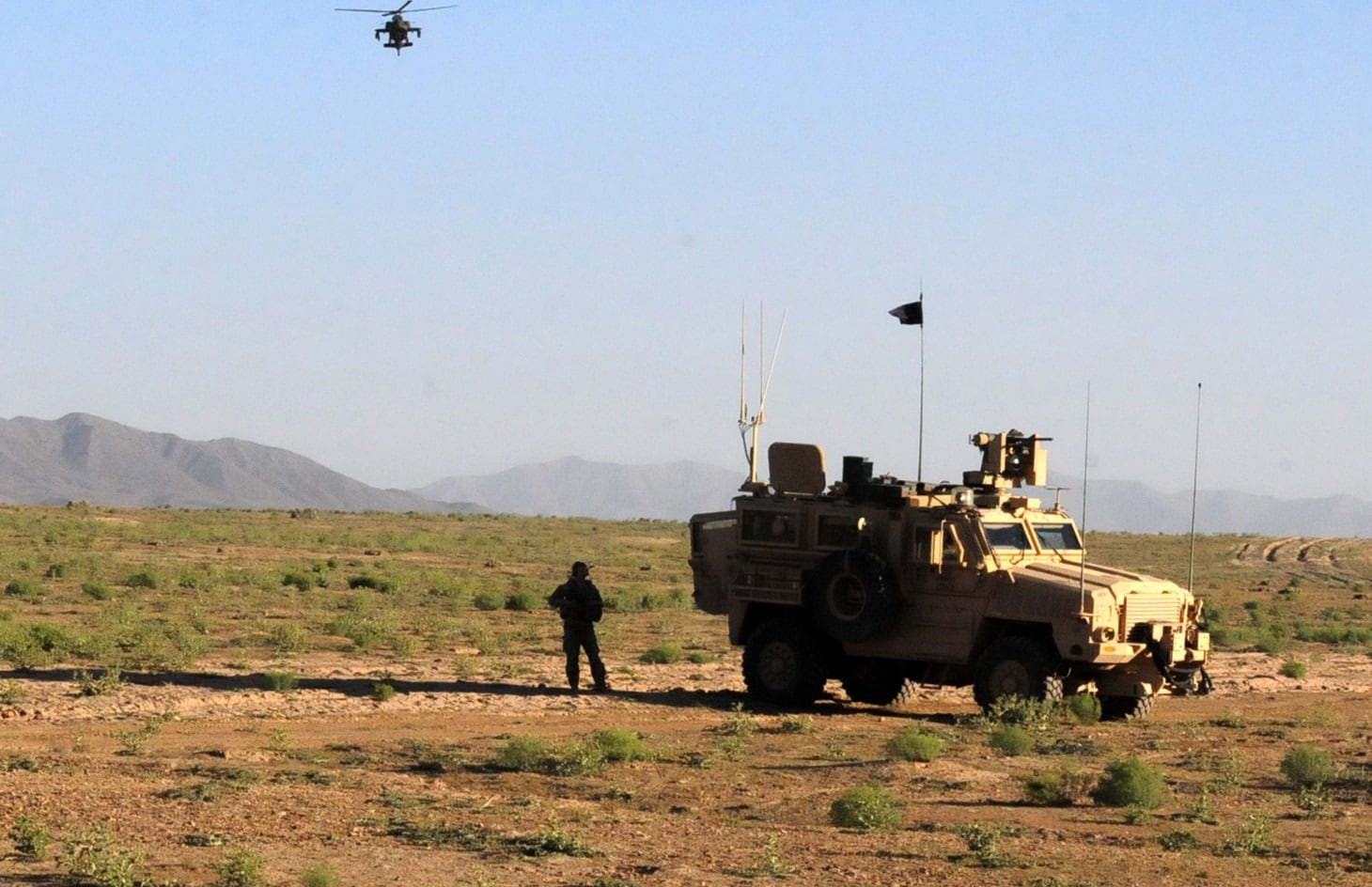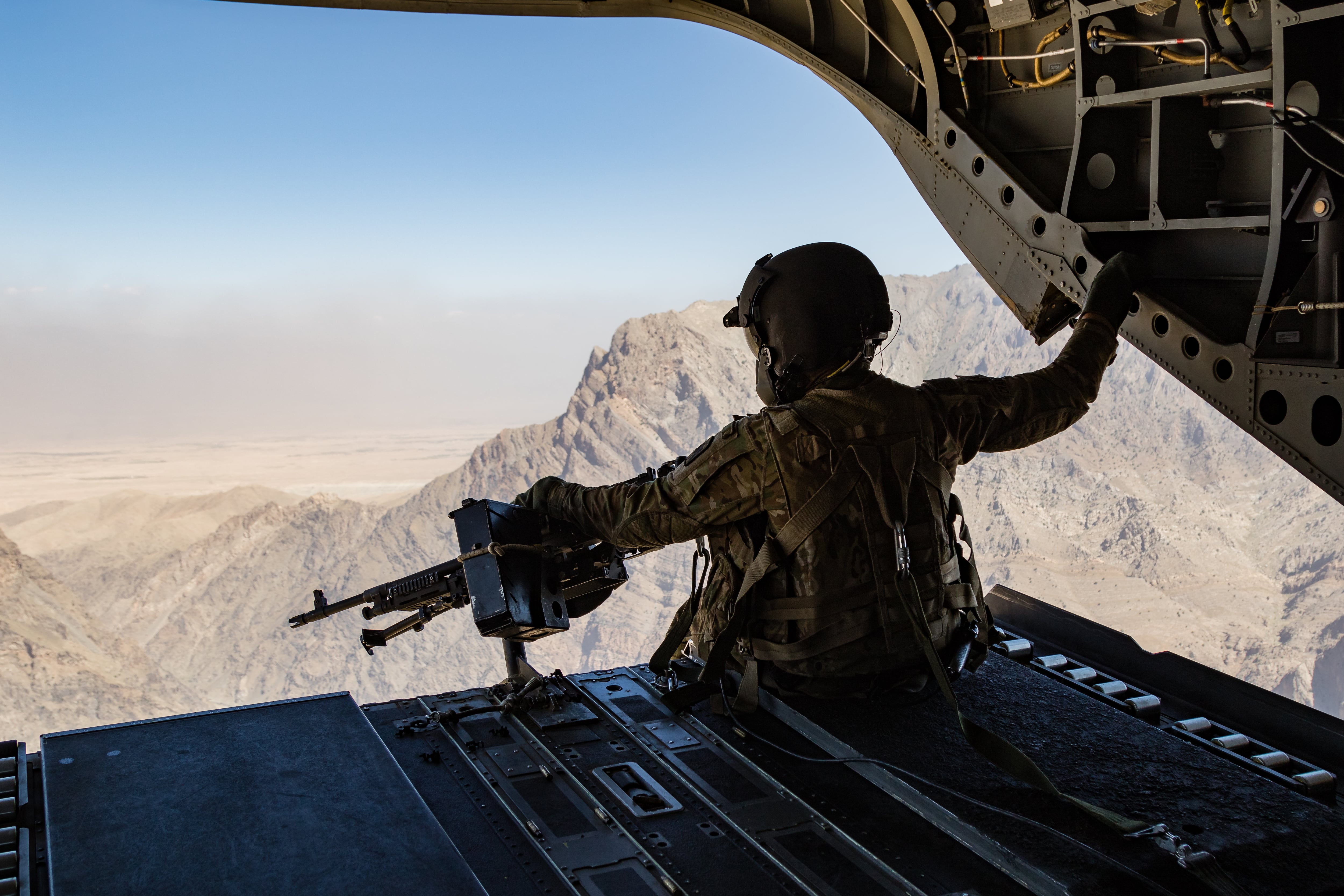As the U.S. continues down the perilous path to peace in Afghanistan a number of spoilers threaten to upend America’s goal to withdraw U.S. troops from Afghanistan and end its longest war.
Secretary of Defense Mark Esper told reporters Tuesday that the Taliban were not living up to their commitments inked between the U.S. and the militant group in Doha, Qatar, on Feb. 29.
Reuters reported the Taliban launched 4,500 attacks in the 45 days since signing the agreement — a nearly 70 percent increase in attacks between March 1 and April 15. Reuters cited two sets of data from a Western military source and an independent group.
Despite the spike in violence the U.S. has continued to draw down forces to a goal of 8,600 by July. CNN reported that there are fewer than 10,000 troops in Afghanistan — putting the U.S. ahead of schedule since the signing of the agreement in February.
Some Marines and sailors with Task Force Southwest in Helmand, Afghanistan, have started to return home.
RELATED

Maj. John J. Rigsbee, a spokesman with U.S. Central Command, told Military Times that roughly 100 Marines and sailors with the unit are returning home following a deployment where they trained and advised the Afghan National Army 215th Corps in Helmand and Nimroz province.
Military Times reached out to Resolute Support and U.S. Forces Afghanistan regarding whether the current Task Force Southwest rotation would be the last Marine deployment to Helmand with the unit.
Rigsbee said he would not discuss the “specifics of future troop movements and timing.”
The Doha agreement calls for all U.S. troops to withdraw over a 14-month period.
But a recent spate of violence across Afghanistan, arguments over a prisoner exchange and divisions over the Afghan presidential election threaten to throw a wrench in America’s goal to end the war and withdraw forces.
It’s been a sticking talking point for U.S. and Afghan officials that Taliban militants have continued levels of attacks against Afghan forces believed to be in violation of the agreement.

The publicly released four-page agreement between the Taliban and U.S. does not include language calling on the Taliban to reduce attacks. U.S. officials have yet to declassify and release annexes to the agreement that outline implementation of the deal.
The U.S. State Department told a government watchdog on Afghan reconstruction efforts that the "agreement does not prohibit all Taliban attacks against Afghan security forces, nor does it preclude the United States from acting in defense of Afghan forces.”
On May 2, Col. Sonny Leggett, a spokesman for U.S. Forces Afghanistan, tweeted a letter from USFOR-A addressed to Zabihullah Mujahid, the Taliban spokesman, claiming the U.S. and Taliban “spoke of ALL sides reducing violence by as much as 80% to pave the way for peace talks.”
The letter said since the Feb. 29 agreement, “the world has witnessed not a decrease, but instead a drastic increase in violence.”
“During those long negotiations there were written and spoken commitments,” the letter reads.
The U.S. has recognized a reduction of violence against cities and coalition forces, according to the USFOR-A letter.
A government watchdog noted that Resolute Support reported the Taliban have refrained from attacks against coalition and U.S. troops, but "increased attacks against ANDSF [Afghan National Defense and Security Forces] to levels above seasonal norms.”
However, data on enemy initiated attacks are no longer being released to the public. Resolute Support told the Special Inspector General for Afghanistan Reconstruction that the data “are now a critical part of deliberative interagency discussions regarding ongoing political negotiations between the U.S. and the Taliban.”
And it’s not the only important metric being withheld from the public that could spotlight progress or lack thereof in the Afghan war. U.S. Air Forces Central Command is no longer releasing its monthly tallies of airstrikes and munitions releases in Afghanistan.
RELATED

“Due to a multiplicity of diplomatic relational concerns, including how the report could adversely impact ongoing discussions with the Taliban regarding Afghanistan peace talks, we are not, at present, publishing a monthly Airpower Summary report,” AFCENT told Military Times in an emailed statement.
CNN first reported that the airstrike report was no longer being released to the public.
Esper also told reporters that he believed the Afghan government was also not living up to commitments.
The Afghan government was not party to the document signed in Doha, but a heated prisoner exchange between the Taliban and Kabul-based government has delayed intra-Afghan negotiations.
Shawn Snow is the senior reporter for Marine Corps Times and a Marine Corps veteran.




